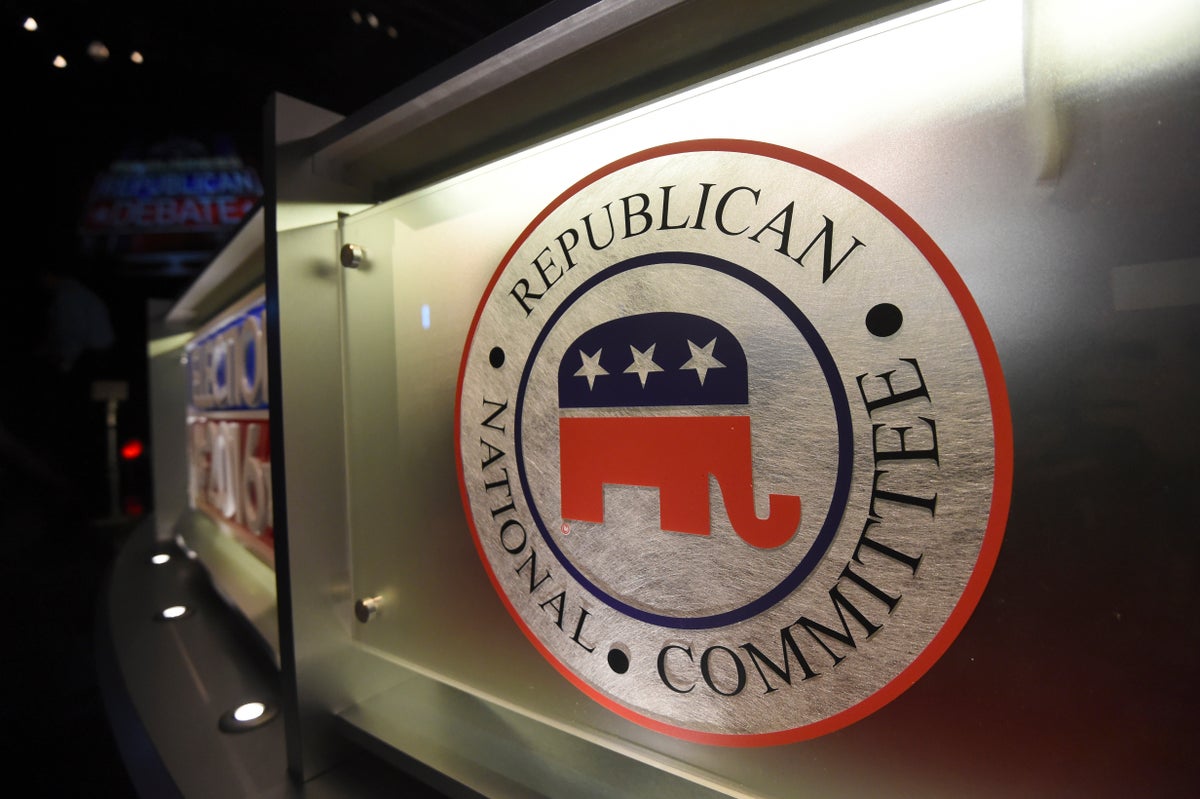
With six weeks until the first 2024 Republican presidential debate, some hopefuls are finding creative ways to boost their donor numbers and ensure they make it on stage.
Biotech entrepreneur Vivek Ramaswamy rolled out a plan to let people who raise money for his campaign keep 10% of what they take in from other donors. North Dakota Gov. Doug Burgum is offering $20 Mastercard or Visa gift cards in return for campaign donations of as little as $1. Businessman Perry Johnson is offering copies of his book in exchange for donations.
The unusual efforts are in response to a Republican National Committee requirement that participants in the Aug. 23 debate in Milwaukee raise money from at least 40,000 donors across the country. That's a tall task for some of the hopefuls who aren't as well known as former President Donald Trump or Florida Gov. Ron DeSantis.
It's a recognition of the make-it-or-break-it opportunity that the debate stage provides for lower-tier candidates in a large field who need media exposure to share their message and reach voters.
Dan Weiner, an attorney who directs the Brennan Center for Justice’s Elections and Government Program, said “unorthodox fundraising” tactics are becoming more common, noting that candidates are trying new things with the knowledge that the Federal Election Commission could take action if legal or ethical concerns were raised.
“More often than not, these do at least sometimes raise questions about whether they’re skirting at the edge of the law,” Weiner said. “In both instances, do I necessarily think that the FEC is going to do anything about it? Maybe, but I’d be a little bit skeptical.”
On Monday, Ramaswamy, who launched his campaign with a $10 million infusion of his own cash, introduced the “Vivek Kitchen Cabinet,” a plan that he said would “democratize” the fundraising process by letting fundraisers keep 10% of what they bring in for him.
“Why should it be some member of some managerial class that’s a secreted, closeted group of fundraisers, in the cloistered world of politics?” Ramaswamy asked in a video posted on Twitter. “It shouldn’t be.”
As of Tuesday, Ramaswamy’s campaign said more than 1,000 people had signed up for the program, which hires people as independent contractors subject to compliance with FEC regulations, according to the campaign’s website.
Burgum, a wealthy former software entrepreneur now in his second term as North Dakota's governor, announced a program Monday to give away gift cards — “Biden Relief Cards,” as a critique of President Joe Biden's handling of the economy — to as many as 50,000 people, just over the minimum donor threshold.
Campaign spokesperson Lance Trover said the effort “allows us to secure a spot on the debate stage while avoiding paying more advertising fees to social media platforms who have owners that are hostile to conservatives.” The campaign said it could reach its 50,000-card maximum by the end of the weekend.
Paul S. Ryan, a campaign finance attorney who has worked for nonprofit watchdog groups like Common Cause, said Burgum’s reimbursement framework seems to be a clear violation of campaign finance law.
“Burgum’s contributing to his own campaign using the names of the people who opt into his gift card scheme,” Ryan said. “All of these gift card recipients are straw donors.”
Burgum’s campaign said its legal advisers had reviewed and approved the fundraising mechanism. The FEC said in a statement Friday that it wouldn't comment on the legality of Burgum's plan.
Johnson, a wealthy but largely unknown businessman from Michigan, announced last month that he would be giving copies of his book “Two Cents to Save America” — which retails for $20 — to anyone who donated to his campaign.
Gift cards and other giveaways have been used by campaigns before, both in presidential races and other contests.
In 2014, Republican Bruce Rauner’s campaign handed out thousands of prepaid Visa gift cards to volunteers helping to round up support for his successful Illinois gubernatorial campaign. According to the Chicago Tribune, the expense wasn’t revealed until months after the election, when Rauner’s political committee recouped nearly $55,000 after the “liquidation of previously purchased asset — redemption of gift cards,” according to finance filings.
Many of Rauner’s advisers are now running Burgum’s campaign.
In the 2020 presidential election cycle, when Democratic campaigns were complaining about the high threshold to make the debate stage, tech entrepreneur Andrew Yang said he would give a “freedom dividend” of $1,000 a month for a year to 10 American families, a key tenet of his universal basic income proposal. The offer prompted questions about whether he was trying to buy votes but also generated a buzz online and helped the campaign build a list of possible supporters.
Within days, nearly half a million people had reportedly signed up for the chance to get the payout. In that same fundraising quarter, Yang’s campaign brought in more than $16 million, his best quarterly posting to date. His campaign later fizzled, and he ended his run as New Hampshire was counting its first-in-the-nation primary results that February.
In addition to the donor threshold, Republican candidates must meet other requirements to quality for the party's first 2024 debate. They must earn at least 1% in three high-quality national polls, or a mix of national and early-state polls, between July 1 and Aug. 21. They must sign a pledge backing the eventual 2024 Republican nominee. And they must agree not to participate in any non-RNC sanctioned debate for the remainder of the election cycle, which includes the traditional general election debates hosted by the Commission on Presidential Debates for the last three decades.
Weiner predicted that campaign tactics would only become more innovative as the 2024 election grows closer and the debate thresholds become steeper.
“The campaigns are just sort of heating up right now, and you tend to see more of this with the insurgent candidacies,” he said. “Campaigns should be given some sort of leeway to be creative.”







